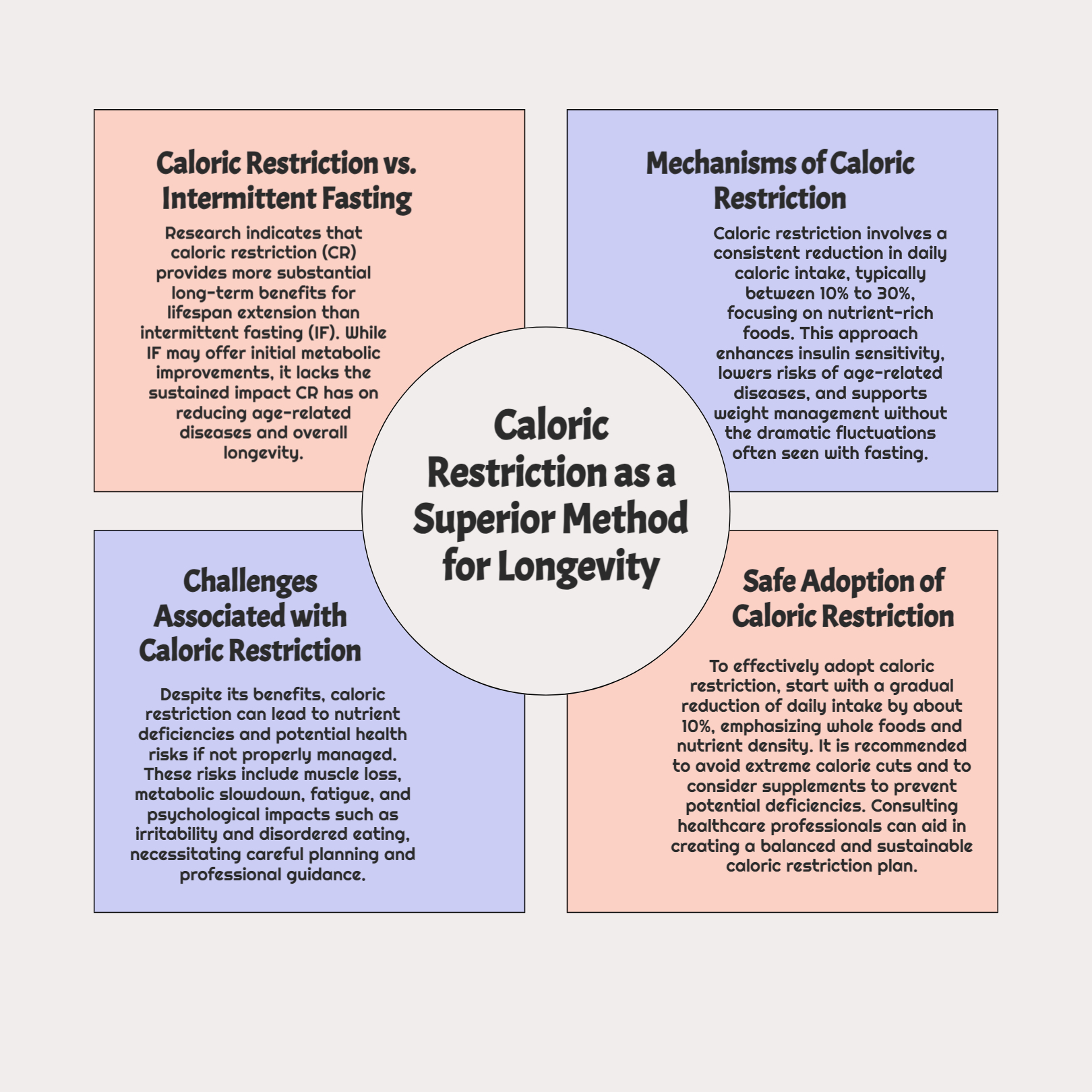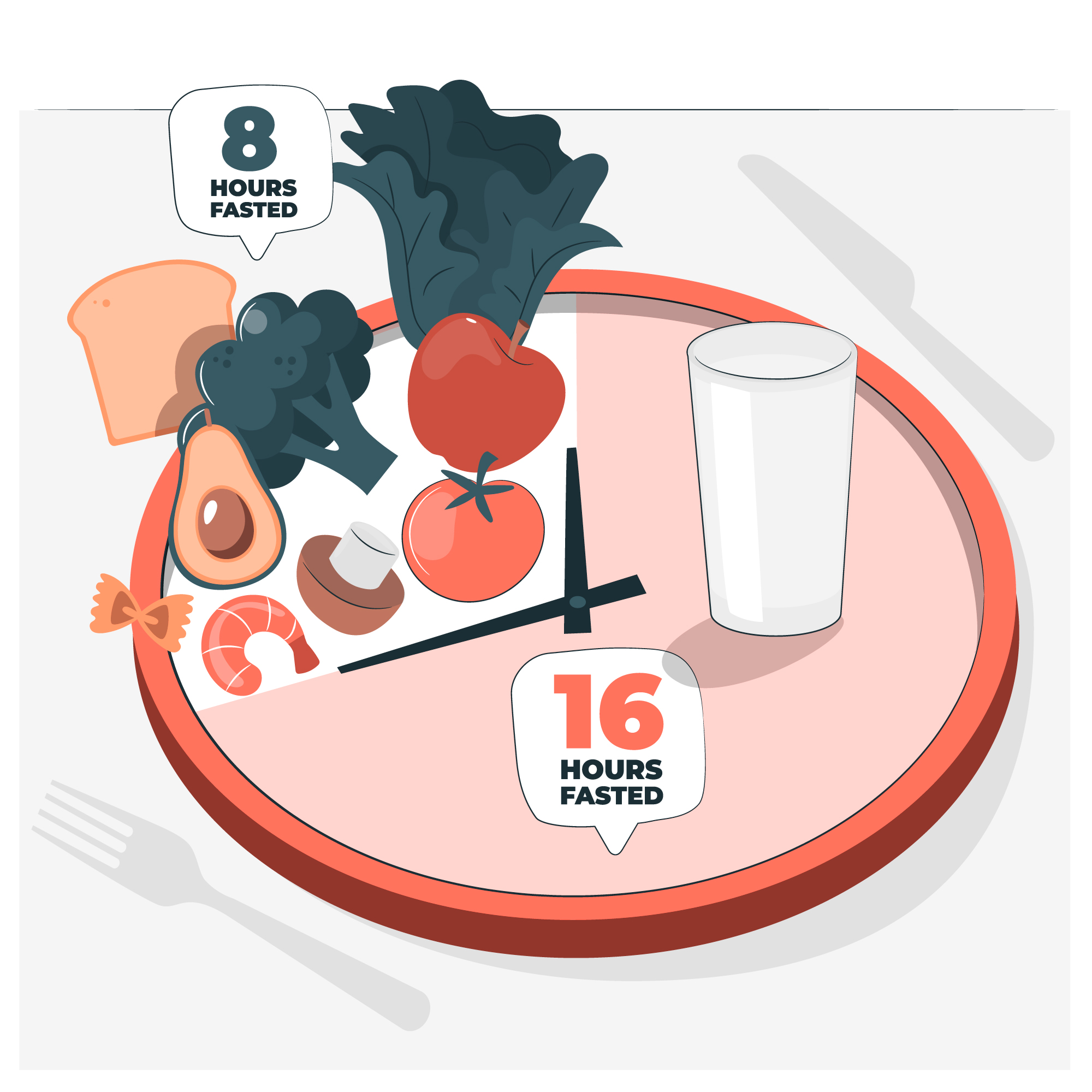In the quest for a longer, healthier life, diets are seen as potential keys to longevity. A new study suggests that when it comes to extending lifespan, caloric restriction (CR) might be more effective than intermittent fasting (IF). US-based researchers at Jackson Laboratory in Bar Harbor, Maine, and Calico Life Sciences in South San Francisco did a series of controlled trials in mice. CR extended their lifespan and delayed the onset of age-related diseases. Conversely, intermittent fasting produced initial metabolic improvements but lacked the long-term impact on lifespan seen with consistent CR.
Trupti Padhi, Senior Dietician and Certified Diabetic Educator, who consults on Practo highlights why this distinction matters. “Caloric restriction boosts metabolism in a sustainable way, providing essential nutrients while helping prevent chronic conditions like high blood pressure, cholesterol imbalances, and even fatty liver,” she says. “While intermittent fasting may yield short-term results, over time, it can harm metabolic health, impair digestion and even exacerbate cholesterol and blood sugar issues.”
The scientists concluded that consuming fewer calories can lead to longer, healthier lives by reducing age-related diseases and enhancing metabolic function. According to the study published in scientific journal Nature, CR has significant effects on longevity.
What Is Caloric Restriction?
CR is essentially about a consistent reduction in daily caloric intake without compromising essential nutrition. CR works by maintaining a steady, nutrient-rich diet rather than placing the body under periodic fasting stress. It’s less about eating at certain times and more about consuming fewer calories consistently, a strategy that appears to support cellular health and prevent the metabolic slowdowns that accompany IF.
How Caloric Restriction Works
The practice of caloric restriction involves a daily reduction of calorie intake (typically around 10% to 30% below the body’s energy needs) without sacrificing on essential nutrients. Consultant Dietician and Diabetes Educator Kanikka Malhotra says, “Caloric restriction can be implemented through scientifically supported methods, with a consistent reduction focusing on nutrient-dense foods.” Unlike IF, which compresses eating into specific time windows, CR focuses on daily intake moderation and nutrient quality.

Through regular, balanced intake, caloric restriction promotes:
- Enhanced Insulin Sensitivity: This leads to better glucose regulation, reducing risks for diabetes and other metabolic conditions.
- Reduced Age-Related Diseases: By supporting cellular health, CR has been linked to lower rates of cardiovascular diseases, neurodegeneration, and even certain cancers.
- Weight Management: The steady reduction in calories supports gradual, sustainable weight loss and prevents the dramatic weight fluctuations that can accompany intermittent fasting.
The benefits are clear, but CR isn’t without its challenges. As Malhotra notes, “CR must be approached thoughtfully to avoid nutrient deficiencies, ideally under professional guidance to ensure essential vitamins and minerals are maintained.”
Caloric Restriction vs Intermittent Fasting

While IF has gained immense popularity, especially with methods like the 16/8 protocol (16 hours of fasting followed by an 8-hour eating window), the new research suggests its benefits might be shorter-lived compared to CR. Fasting can initially trigger beneficial stress responses in the body, leading to improved insulin sensitivity and fat burning. However, as time passes, these responses can taper off, sometimes leading to digestive issues, liver strain, and fluctuating blood sugar levels.
Padhi explains, “Intermittent fasting can be effective at first, but over time, it can lead to poor metabolism and even harm liver and kidney function. In contrast, a calorie-restricted diet provides a balanced approach that supports metabolic health long-term.” IF may also trigger overeating during eating windows, which can counteract its metabolic benefits, whereas with CR you are more likely to develop a steady, sustainable relationship with food.
Potential Challenges And Risks
As effective as CR may be, it is not without its drawbacks. Long-term CR can lead to nutrient deficiencies, especially if not managed carefully. In cases where calorie intake is too low, one may experience fatigue, immune suppression, and even anemia.
Malhotra also points out the psychological effects of prolonged CR. “The restrictive nature of caloric reduction can lead to mood swings, irritability, and even disordered eating if not handled properly. There’s a natural biological tendency to overeat after restriction, which could undo the benefits of CR,” she says.
For those practicing CR, it’s crucial to consult with healthcare providers to monitor potential risks such as:
- Muscle Loss: Without adequate protein intake, CR can lead to muscle degradation.
- Metabolic Slowdown: As the body adapts to lower calorie intake, the metabolic rate may decrease, making weight maintenance challenging.
- Psychological Impact: A restrictive diet can sometimes increase irritability, mood swings, and risk of disordered eating.
To offset these risks, CR practitioners are advised to work with dieticians or nutritionists who can help plan balanced meals that provide essential nutrients without overloading on calories.
How To Adopt Caloric Restriction Safely
For those interested in trying caloric restriction, the key is a gradual approach. Start by reducing daily intake by 10%, focusing on whole foods packed with nutrients. Avoid drastic calorie cuts or restrictive diets that may lead to nutrient imbalances.
Kanikka Malhotra suggests, “Approach CR as a sustainable lifestyle change rather than a quick fix. Focus on nutrient-dense foods—fruits, vegetables, lean proteins—and avoid ultra-processed foods that can strip the diet of essential vitamins.” Supplements may also help offset potential deficiencies, especially in diets where caloric intake is notably reduced.
What This Means For Your Health
While IF remains a popular approach for short-term weight management, CR may offer a gentler, more sustainable path toward a long, healthy life. Rather than focusing on what times to eat, CR encourages you to focus on the quality and quantity of what you consume every day.
By supporting metabolic health, blood sugar regulation, and overall cellular resilience, CR can provide a more stable foundation for long-term wellness. Padhi reinforces this point, “Caloric restriction is not just about eating less but about eating smarter.” With careful planning, CR can be a gateway to healthier living that respects both the body’s nutritional needs and its natural rhythms.
(The information provided in this health article is for general informational purposes only and is not intended as medical advice. It is not a substitute for professional healthcare consultation, diagnosis, or treatment. Always seek the advice of your physician or other qualified health provider with any questions you may have regarding a medical condition.)



